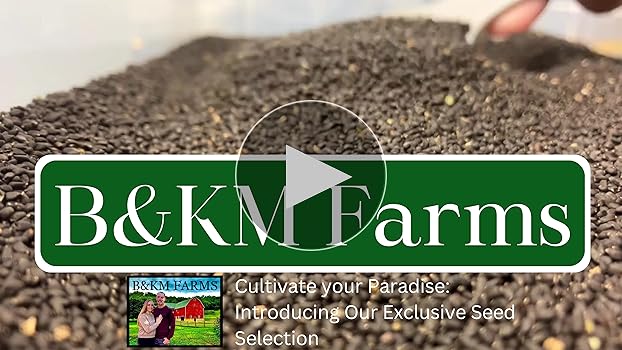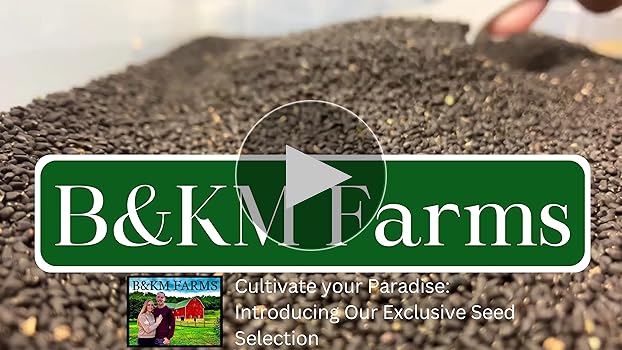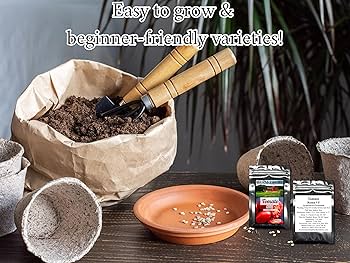
Seeds of Doubt: How Texas Seed Laws Threaten Our Homesteading Heritage
For generations, Texans have relied on the bounty of their land, carefully selecting and saving seeds from the most resilient and flavorful crops to ensure a fruitful harvest year after year. This practice, passed down through families and communities, is the cornerstone of self-sufficiency and a vital link to our agricultural heritage. But increasingly, these traditions are under threat. Here in Texas, recent changes to seed laws are casting a shadow of uncertainty over our ability to save seeds and share them with our neighbors, impacting not just our gardens, but the very foundation of our local food system.
Like many, my own passion for homesteading grew from a desire to connect with the land and provide nourishing food for my family. It started with a small backyard garden and a handful of heirloom tomato seeds gifted by my grandmother. Those tomatoes, perfectly adapted to the Texas heat and drought, produced a flavor unlike anything I could find in a grocery store. Year after year, I carefully saved their seeds, improving their resilience and passing them on to friends and fellow gardeners. They became a symbol of our shared agricultural heritage, a tangible link to the past, and a promise for the future. The thought that this simple act of preserving and sharing could be restricted is deeply concerning.

Understanding the Changing Landscape of Texas Seed Laws
While Texas doesn't have overtly restrictive laws explicitly banning seed saving, the subtle shifts in regulations, coupled with the increasing dominance of patented seeds and stringent labeling requirements, are creating an environment that makes it more difficult for small-scale farmers and gardeners to freely save and share seeds. One of the key challenges lies in the enforcement of plant variety protection (PVP) and utility patents on seeds. These intellectual property rights, while intended to incentivize innovation in agriculture, can inadvertently restrict the ability of farmers to save and replant seeds of protected varieties.
Specifically, the rise in PVP and utility patents held by large agricultural corporations gives them significant control over the seed market. Farmers who purchase these patented seeds are often required to sign contracts that prohibit them from saving and replanting the seeds. While this may seem like a reasonable business practice from the perspective of the seed companies, it has a profound impact on the ability of small-scale farmers and homesteaders to maintain their independence and preserve local seed diversity.
Additionally, strict seed labeling laws, while designed to ensure seed quality and prevent fraud, can place an undue burden on small-scale seed savers who lack the resources to comply with complex testing and labeling requirements. These regulations can inadvertently create barriers to entry for smaller players in the seed market, further consolidating power in the hands of large corporations. It's a system that increasingly favors commercial interests over community needs.
It's worth noting that the Texas Department of Agriculture enforces these regulations. While the TDA aims to support agriculture in Texas, the current framework of seed laws and regulations often disproportionately benefits large-scale agricultural operations while placing smaller farmers and gardeners at a disadvantage.
The Impact on Small Farms, Gardeners, and Biodiversity
These increasing restrictions on seed saving and sharing have far-reaching consequences for our local food system. By limiting access to locally adapted seeds, we risk losing valuable genetic diversity. Heirloom seeds, carefully selected and preserved over generations, are often better suited to local growing conditions and more resistant to pests and diseases. When farmers and gardeners are forced to rely on commercially available seeds, they may lose access to these valuable traits, making our food system less resilient to climate change and other environmental challenges.
Furthermore, restricting seed saving undermines traditional agricultural practices that have sustained communities for centuries. Seed saving is not just a practical necessity; it is a cultural practice that connects us to our heritage and fosters a sense of stewardship for the land. By eroding this tradition, we risk losing a vital part of our identity.
The shift towards patented seeds also concentrates power in the hands of a few large corporations, making our food system more vulnerable to disruptions and price fluctuations. When farmers are dependent on a limited number of seed suppliers, they are more susceptible to market volatility and less able to adapt to changing conditions. This lack of resilience can have serious consequences for food security, particularly in rural communities.

A Call to Action: Reclaiming Our Seed Sovereignty
The good news is that we are not powerless in the face of these challenges. By taking collective action, we can protect our right to save seeds and support seed diversity in our community. Here are three concrete steps you can take today:
Contact Your Local Representatives: Let your state representatives and senators know that you value seed saving and support policies that promote seed diversity. Express your concerns about the impact of restrictive seed laws on small-scale farmers and gardeners. Urge them to support legislation that protects the right to save and share seeds. You can find your representatives' contact information on the Texas Legislature website. (Search on Google to find Texas Legislature site.)
Join a Seed Saving Organization: Connect with local and national seed saving organizations that are working to protect seed diversity and advocate for policy changes. The Seed Savers Exchange (https://www.seedsavers.org/) is a great resource for information and advocacy. They offer valuable resources, including seed saving guides, educational materials, and opportunities to get involved in seed saving projects.
Participate in Seed Swaps (Safely and Legally): Connect with other gardeners and farmers in your community to exchange seeds and knowledge. Before participating in seed swaps, be sure to familiarize yourself with any local regulations regarding seed sales and labeling. Look for established seed swaps run by reputable organizations that prioritize compliance with relevant laws. Consider establishing your own informal seed-sharing network with friends and neighbors, focusing on open-pollinated varieties that are well-suited to your region.
Saving seeds is not just a hobby; it is an act of resistance, a way to reclaim our food sovereignty and protect our agricultural heritage. By working together, we can ensure that future generations of Texans have access to the seeds they need to thrive. Let's cultivate a future where seed diversity flourishes, and our local food system is resilient and sustainable. Let's stand together for the seeds, for the soil, and for the future of Texas agriculture.